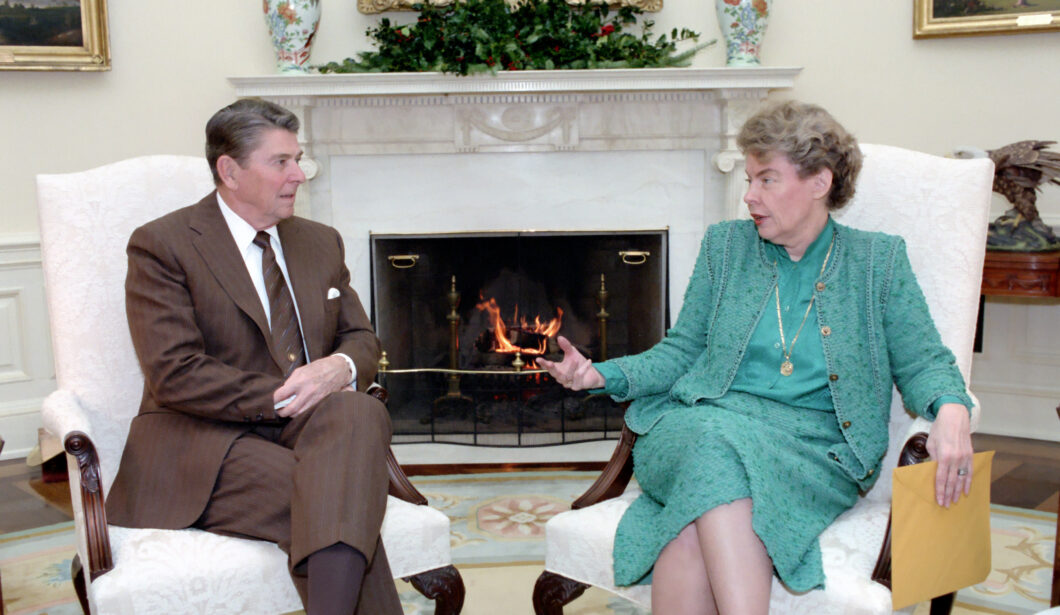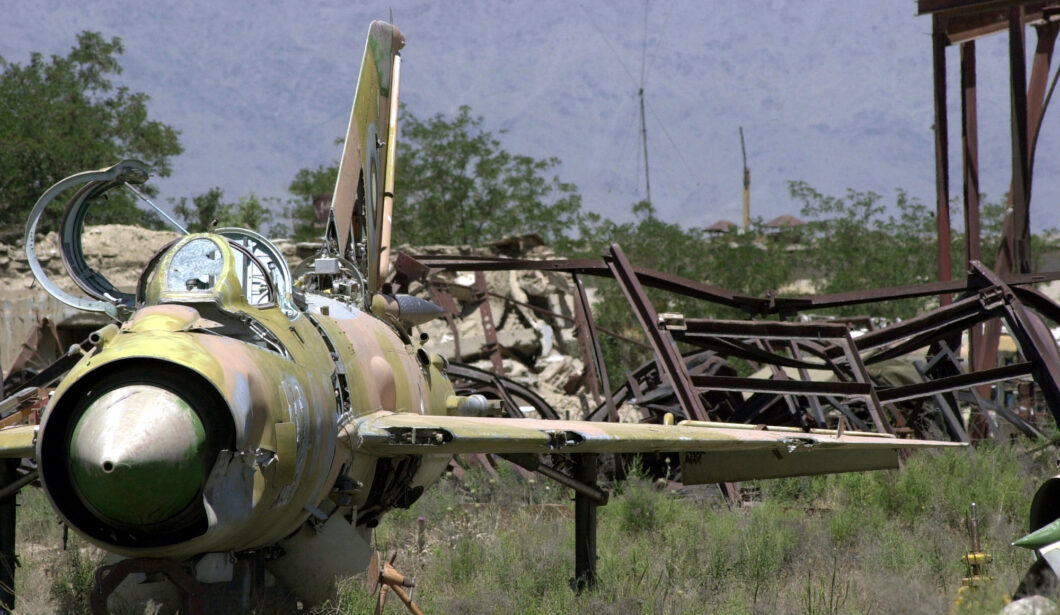In 1991, the Cold War ended in a bloodless victory for NATO. After 45 years of a grueling, nuclear-tinged Cold War, communism was dead, Eastern Europe was free, Russia looked to the West for how to build a better, freer future for itself, and liberal democracy and capitalism reigned supreme. But in the ruins of the last war lie the seeds for the next great conflict. Ukrainians are being made to pay with their lives for the arrogance (and ignorance) of Western leaders in the post-Cold War era. Thanks to their hubris, the world now teeters on the brink of a potential nuclear world war over the status of Ukraine.
—
Since the end of the Cold War, Russia’s population has contracted significantly. It has also become riven with ethno-religious tensions within its borders. From Russia’s southern periphery, masses of Muslims have emigrated to Russia. Today there are so many Muslims living within Russia’s borders that Moscow is now the European city with the largest Muslim population. As a result, over the last 20 years—notably during Russia’s conflict with Chechnya in the late 1990s and early 2000s—Islamic extremist violence has increased exponentially within the country. Meanwhile, in Russia’s underpopulated (though resource-rich) Far East, waves of illegal Chinese immigrants have overwhelmed Russian territory. This, too, is changing Russia fundamentally. [Angelo] Codevilla predicted that Moscow might expel the Muslim regions entirely from their federation or simply fence them off. For my part, I have long speculated that Russia is set to lose its Far East to a resurgent China by the end of this century.
As for Russia’s post-Cold War military, it had been a shambles until very recently. If anything, the Ukraine War has forced Russia to adapt quickly and implement much needed reforms to their sclerotic system in order to remain combat effective. My colleague Lee Slusher, a former intelligence analyst for the U.S. government with extensive experience handling the Russia portfolio, believes that Russia has fared far better than Western media sources are claiming in the ongoing Ukraine War. In fact, according to Slusher, Russia’s military has outperformed the NATO-backed Ukrainians at every turn in the conflict—and will continue to do so, the longer that the horrible conflict rages.
As for Russia’s post-Cold War military, it had been a shambles until very recently. If anything, the Ukraine War has forced Russia to adapt quickly and… Russia has fared far better than Western media sources are claiming…
Regarding the modern Russian military, Codevilla believed that the force was “configured for area-denial rather than for projection of power. The Russian military establishment, unlike that of the tsars and of the Soviets, emphasizes technology to economize manpower that, for the first time, is scarce and precious in Russia. Russia’s reliance on nuclear weapons recalls nothing so much as the 1950s Eisenhower doctrine of ’more bang for the buck.’” Russia as a more defensive-minded power is, of course, something that the mainstream Western elite refuse to see. After all, Russia did invade Ukraine. But, as the February 2024 Tucker Carlson-Vladimir Putin interview showed: Russia viewed Ukraine (at least Eastern Ukraine and Crimea) as existing within its borders. And as this work will demonstrate, Moscow was at least willing to accept Ukraine as an independent state, so long as it did not consider joining NATO. The deteriorating state of Russia’s demography lends further credence to Codevilla’s claims that Russia is defensive-minded by necessity rather than choice.
Sadly, it was NATO members—specifically the Americans and their British partners—who agitated for the current situation. There exists a group of mid-level, politically connected policymakers within the bureaucracy in Washington, D.C. who have been there from the end of the Cold War until the present. It was these elements in the U.S. government who set the current policies toward Russia in the wake of the Cold War. Former President Donald J. Trump derisively referred to this group as the “Deep State.” Some have described this cabal as being part of the “Administrative State.” Still others have called this group the “uniparty.” Gary Dorrien named this relatively obscure element of powerful bureaucrats in our national security state the “Democratic-Globalists.” They are the neoconservative and neoliberal leaders who worked for both Republican and Democratic Party presidents following the Cold War and who share a maximalist vision of protecting U.S. interests abroad. This group also has undying enmity toward Russia. And, as you’ll read, they adhere to a quasi-religious commitment to NATO expansion.
There exists a group of mid-level, politically connected policymakers within the bureaucracy in Washington, D.C. who have been there from the end of the Cold War until the present. It was these elements in the U.S. government who set the current policies toward Russia in the wake of the Cold War.
This neoconservative-neoliberal cabal possesses one key attribute, what the Greeks in Zach Snyder’s 300 called a “fatal flaw.” They have a strong case of hubris. The people who belong to this group write lovingly of the need for an American empire (abandoning any pretense of America’s republican founding). They speak dismissively of our allies. The democratic-globalists believe in a borderless world dominated by financial interests, with the United States sitting atop the system, always seeking out the next great threat, and preempting those threats, no matter how small or weak they are before those supposed threats can materialize. Thus, threats such as Russia, which after the Cold War was a broken down, desiccated husk of a once-great country, becomes a de facto villain.

When the hammer-and-sickle came down for the final time over the Kremlin on December 25, 1991, no one could have imagined that a war between NATO and Russia would come after that momentous event. Peace, we were told, was at hand. The U.S. president during the final moments of the Soviet Union’s existence, George H.W. Bush, assured uneasy Americans that the “rule of law” would replace “the law of the jungle” in some magnificent new world order. The neoliberals predicted the “end of history” at the end of the Cold War. All major differences and conflicts would be subordinated to the economic and political realms. Warfare, as we understood it, was over because all major ideological questions had been resolved with the ultimate victory of liberal democratic capitalism over communism. But hubris can turn heroes into villains overnight.
Instead of viewing the end of the Cold War as a chance for America to get back to being a country unpreoccupied with foreign affairs, as many Americans at the time wanted, the “democratic-globalist” cabal—the permanent bipartisan fusion party, as my colleague Michael Walsh has described them—seized it as an opportunity to exploit Russia’s weakness and amplify U.S. power. And while that all may sound good on paper (indeed, it was written down in a wild document that became known as “Rebuilding America’s Defenses” by a now defunct think tank known as the Project for the New American Century), the reality was much more complex.
Instead of viewing the end of the Cold War as a chance for America to get back to being a country unpreoccupied with foreign affairs, as many Americans at the time wanted, the “democratic-globalist” cabal... seized it as an opportunity to exploit Russia’s weakness and amplify U.S. power.
In fact, a great debate raged at the dawn of the post-Cold War era. People like former Reagan administration UN ambassador, Jeane Kirkpatrick and former Nixon administration speechwriter, Pat Buchanan, argued that the United States needed to become a “normal country in a normal time.” The United States needed to pay much closer heed to the problems at home and distance itself from the rest of the world. Kirkpatrick argued that, “a good society is defined not by its foreign policy but by its internal qualities.” As Kirkpatrick assessed, “foreign policy becomes a major aspect of a society only if its government is expansionist, imperialist, aggressive, or when it is threatened by aggression.”

On the other side of the debate were thinkers like the late Charles Krauthammer and former George H.W. Bush administration official, Bill Kristol. Countering Kirkpatrick’s astute arguments were the impassioned calls from Krauthammer in the pages of Foreign Affairs for Washington to exploit what he called America’s “unipolar moment.” Krauthammer supposed that by enhancing America’s relative power in the aftermath of the Cold War, the United States could retain its dominant global status and prevent any new Soviet Union-like threat from arising in the future. Rather than begin the process of looking inward to enhance American life and ignore the siren song of excessive foreign entanglements, Washington’s policymakers heeded Krauthammer’s calls. For a while it seemed like the plan was working. An aggressive policy of breaking down all global trade barriers was undertaken. Meanwhile forceful democracy and human rights promotion became America’s sine qua non in foreign policy in the post-Cold War era. The elite who believed this claptrap also assumed that by liberalizing trade with China, they would bloodlessly cause China to change its communist regime in favor of a democratic government that supported capitalism. In fact, the only thing accomplished by increasing trade with Beijing was enriching the Chinese—making China, and not the United States, very wealthy and powerful.
As for Russia, weakened and adrift after its defeat in the Cold War, the Americans would ensure the old bear could never threaten its neighbors again by encircling the defeated Russia and pressuring it until it broke apart into smaller countries that could then be more easily controlled. In fact, the greatest obstacle to the Western grand strategy of breaking Russia apart forever (if one can even call what we have pursued in Russia a “grand” strategy) has been Vladimir Putin’s regime. In 2022, writing at the blog for the London School of Economics, Robert Wade describes his belief that NATO maneuvered Russia into attacking Ukraine so as to have a pretext to implement its long-standing fantasy of overthrowing the Putinist regime and replacing it with something far more amenable.

Thus, the neoconservative-neoliberal obsession with regime change in every so-called autocratic state around the globe, the kind of plan that was instituted in Iraq in 2003, is very much still in effect with the much larger, nuclear-armed Russia today. Wade assessed that, “As the Afghanistan insurgency [during the Soviet-Afghan War in the 1980s] against the Soviet military helped to bring down the Soviet Union, the Western strategists hope that the Ukrainian insurgency against the bogged-down Russian military will help end the Putin regime.” Of course, at no point in these discussions has the neocon-neolib cabal questioned what happens if someone nastier than Putin replaces him? What’s more, if any nation in this fight is akin to the Soviet Union, it is, unfortunately, the United States which has painfully overextended itself in Ukraine and is now losing—with that likely defeat having immense implications far beyond the borders of tiny Ukraine.
U.S. power projection in Europe has been conducted via multilateral institutions, notably NATO (the European Union has also been a conduit for U.S. power). NATO, which had basically become the equivalent of a headless chicken the moment the Soviet Union was vanquished and the Cold War ended, was only more than happy to embrace the neocon-neolib cabal’s ideas. It was entirely self-serving. After all, NATO had become a massive, multilateral bureaucracy in search of meaning. What would it do now that its favorite enemy, the Soviet Union, was no more? A rational person might have argued that it was time for NATO to disband, for European security to be left to the Europeans and the Russians, and for the Americans to go home. But that wasn’t to be.
NATO, a true hero of the Cold War, has become the villain in the post-Cold War era. In searching for its new purpose, NATO settled on repurposing its old raison d’être.
Read more in A Disaster of Our Own Making: How the West Lost Ukraine
